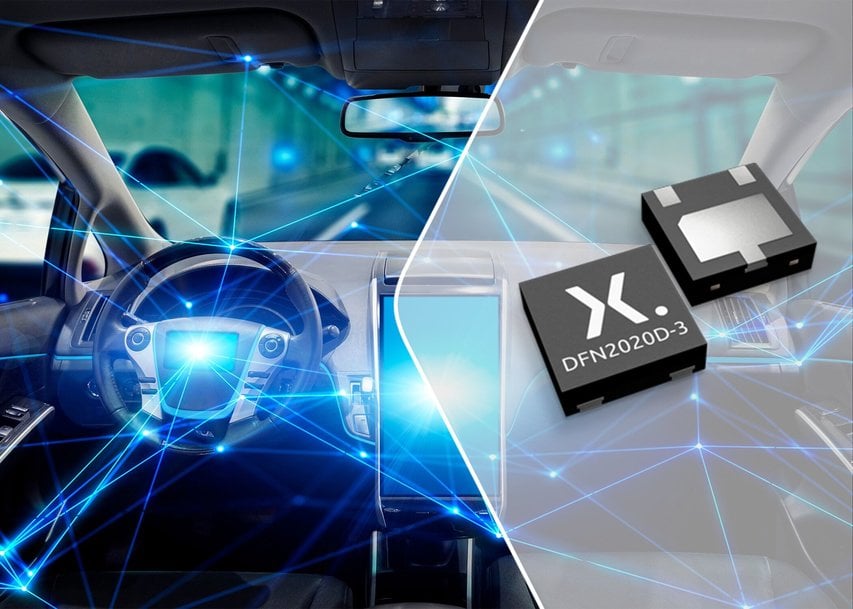Nexperia to offer popular power BJTs in space and energy efficient DFN2020D-3
Addressing the industry’s demand for power bipolar junction transistors in more modern packaging.

Nexperia has announced the latest extension to its popular portfolio of power bipolar junction transistors (BJTs) with the release of ten standard and ten automotive-qualified products in DFN2020D-3 packaging. These new devices, available in 50 V and 80 V ratings and supporting current ranges from 1 A to 3 A in NPN and PNP polarity, further solidify Nexperia's position as a leading provider in the market. With this release Nexperia is offering the majority of its power BJTs in DFN packaging for designers looking for a space and energy efficient alternative to older SOT223 and SOT89 packages.
DFN2020D-3 packaged devices provide significant board space savings compared to their leaded counterparts. For example, it delivers an 80% reduction in board space when compared to SOT89 and a 90% reduction compared to SOT223. The DFN2020D-3 package also features side-wettable flanks to enable automated optical inspection (AOI) of solder joints thus ensuring improved robustness and reliability.
In addition to general-purpose transistors Nexperia has also released a series of low VCEsat devices, like the PBS5350PAS-Q. These combine exceptionally low saturation voltage and high current gain and can help to improve the energy efficiency of many power supply applications. Due to their superior performance, low VCEsat transistors can replace standard transistors in larger packages, enabling more compact designs on smaller PCBs. Further technical information on low VCEsat technology can be found in this blog post.
Nexperia supports engineers working with bipolar junction transistors with the BJT Application Handbook, a practical, comprehensive, and up-to-date reference work written by engineers for engineers. This provides design engineers with a better understanding of bipolar transistors, their fundamentals, thermal considerations, and application insights.
To learn more about Nexperia’s bipolar transistors, visit.
www.nexperia.com

